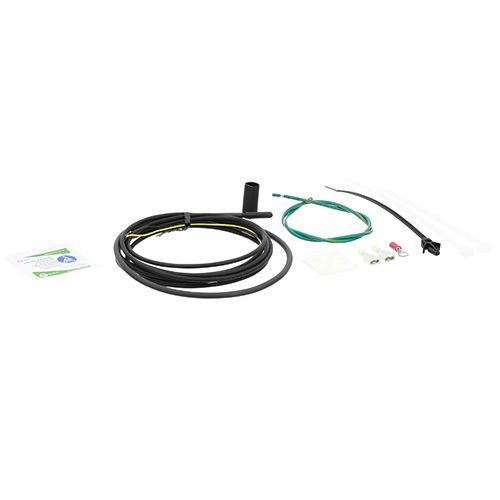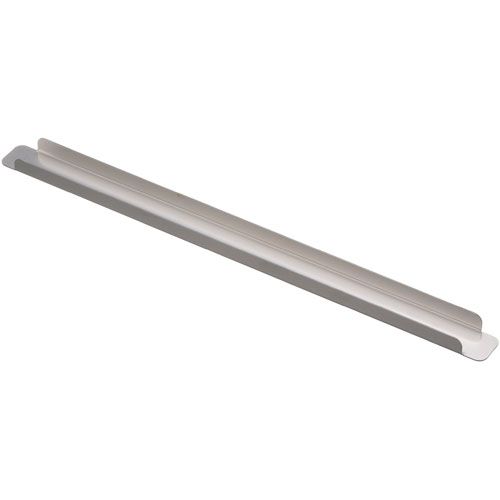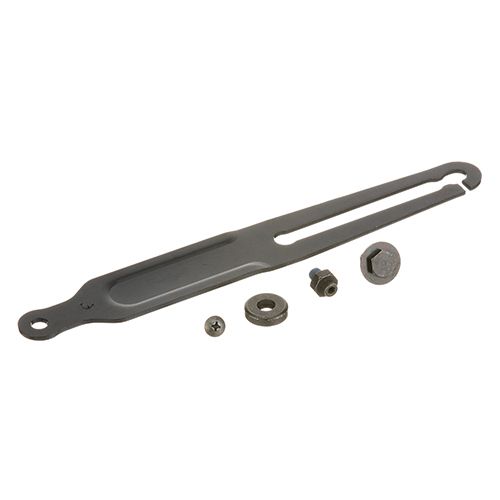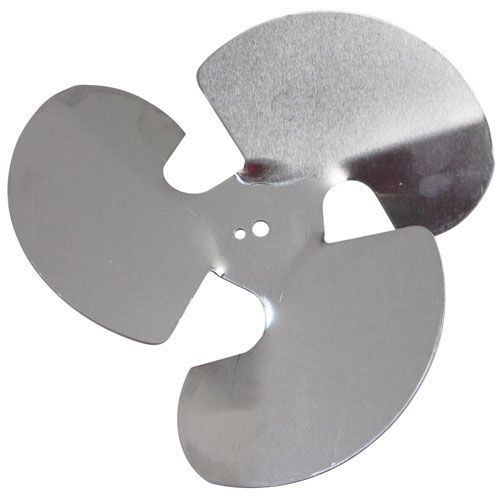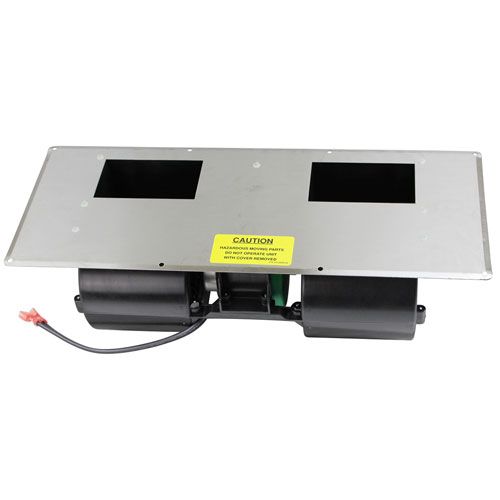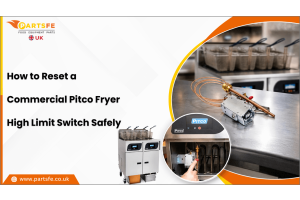How to Choose the Right Commercial Refrigerator for Restaurant Efficiency
A commercial refrigerator is the unsung hero of any successful restaurant. It's more than just a cold storage unit and a significant factor in managing energy costs. Choosing the right commercial refrigerator is a critical decision that impacts everything from ingredient freshness to operational expenses. Selecting the correct unit ensures that your ingredients are stored at optimal temperatures, reducing spoilage and waste while also helping maintain food safety standards. The right refrigerator contributes significantly to smoother kitchen operations, reduced energy consumption, and a healthier bottom line. This guide provides a comprehensive overview of how to choose the right commercial refrigerator for your restaurant, ensuring efficiency, food safety, and long-term savings.
Understand Your Storage Needs
Before diving into the world of commercial refrigerators, take a step back and thoroughly assess your restaurant's specific storage needs. Understanding the volume and types of food you need to store daily is the foundation for choosing the right refrigeration solution.
-
Assess daily food volume: Estimate the quantity of food your restaurant uses daily. Consider peak hours, popular menu items, and any seasonal variations that might impact your storage requirements.
-
Categorize food types: Different food items have different storage requirements. Raw meat, dairy products, produce, and prepared foods all need to be stored at specific temperatures to maintain freshness and prevent bacterial growth.
-
Food safety guidelines: Adhering to food safety guidelines is paramount. Ensure your refrigerator allows for proper organization to prevent cross-contamination. Store raw meats on the lowest shelves to prevent drips onto other food items, and keep cooked foods separate from raw ingredients.
Types of Commercial Refrigerators
Commercial refrigerators come in various types, each designed for specific purposes and environments. Here's an overview of the most common types and when to choose each:
-
Reach-In refrigerators: These are the workhorses of most commercial kitchens, offering easy access to stored goods. They are available in one-, two-, or three-door configurations and are ideal for restaurants, cafes, and bakeries that need quick access to ingredients during peak hours.
-
Undercounter units: These compact, space-saving refrigerators are designed to fit seamlessly beneath counters. They are perfect for bars, small cafes, and quick-service restaurants where space is limited.
-
Walk-in coolers: Walk-in refrigerators provide large storage capacity and customizable shelving, making them ideal for storing bulk items. They are best suited for large restaurants, supermarkets, and food distributors with significant storage requirements.
-
Worktop refrigerators: Combining refrigeration with a durable workspace, worktop refrigerators are ideal for kitchens that need extra prep space while keeping ingredients within reach. They are best for small to medium-sized restaurants and bakeries where maximizing space efficiency is crucial.
-
Display refrigerators: These refrigerators are designed to showcase food items appealingly while keeping them fresh. They are perfect for bakeries, delis, and cafes where product presentation plays a key role in boosting sales.
Key Features to Consider
When choosing a commercial refrigerator, several key features can significantly impact its performance, efficiency, and suitability for your restaurant.
-
Storage capacity and shelving: The refrigerator should have enough storage space to accommodate your daily food volume. Adjustable shelving allows for flexible organization and easy access to different items.
-
Temperature range and control accuracy: Accurate temperature control is crucial for food safety. Look for refrigerators with a consistent temperature range and reliable controls to maintain optimal storage conditions.
-
Door type: Solid doors offer better insulation and energy efficiency, while glass doors allow for easy product visibility. Swing doors are standard, while sliding doors can save space in tight areas.
-
Compressor location: Top-mounted compressors are easier to maintain and don't draw in floor-level dust and debris. Bottom-mounted compressors provide easier access for loading and unloading.
-
Material and durability: Stainless steel is more durable, corrosion-resistant, and easier to clean, making it ideal for high-use commercial kitchens. Aluminum is a more cost-effective option, but may not be as durable.
Energy Efficiency & Certifications
In today's eco-conscious world, energy efficiency is not just a bonus but a necessity. Choosing an energy-efficient commercial refrigerator can lead to significant long-term savings on energy bills while also reducing your restaurant's environmental footprint.
-
Importance of Energy Star rating: Look for refrigerators with the Energy Star certification. These models meet strict energy efficiency guidelines set by the Environmental Protection Agency (EPA), ensuring optimal performance with minimal energy consumption.
-
Long-term savings on energy bills: Energy-efficient refrigerators consume less electricity, resulting in lower monthly utility bills. Over the lifespan of the refrigerator, these savings can add up to a substantial amount.
-
Eco-friendly refrigerants: Opt for refrigerators that use eco-friendly refrigerants, such as R-290, which have a lower global warming potential compared to older refrigerants.
Budget & ROI
Investing in a commercial refrigerator is a significant financial decision. It's important to consider both the upfront cost and the long-term return on investment (ROI).
-
Cost vs. performance: Balance your budget with the features and performance you need. While a lower-priced refrigerator might seem appealing, it could end up costing you more in the long run due to higher energy consumption or frequent repairs.
-
Warranties and long-term service value: Check the warranty offered by the manufacturer. A longer warranty period indicates the manufacturer's confidence in the product's durability. Also, consider the availability of reliable service and support.
-
Leasing vs. buying options: Leasing can be a good option if you have limited capital or prefer to avoid the responsibilities of ownership. Buying, on the other hand, gives you full ownership and can offer tax benefits through depreciation.
Top Brands to Consider
When it comes to commercial refrigerators, certain brands stand out for their reliability, durability, and service.
-
True manufacturing: True is known for high-quality, durable refrigerators with a focus on energy efficiency.
-
Turbo Air: Offers a wide range of refrigerators with innovative features and reliable performance.
-
Hoshizaki: Renowned for innovative designs, energy efficiency, and precise temperature control.
-
Beverage-Air: Specializes in refrigerators for beverage storage and display, with a focus on visual appeal and functionality.
Manitowoc Ice Dispenser Issues: Here's How To Troubleshoot
Maintenance & Ease of Cleaning
Maintaining a clean and well-functioning refrigerator is essential for food safety and prolonging the lifespan of your equipment. Consider the following factors:
-
Removable gaskets: Removable door gaskets make cleaning and replacement easier, while smooth, easy-to-clean surfaces prevent the buildup of bacteria and grime.
-
Regular condenser coil maintenance: Regularly cleaning the condenser coils ensures efficient heat transfer and prevents the refrigerator from overworking. This simple task can significantly improve energy efficiency and extend the refrigerator's lifespan.
-
Availability of replacement parts: Ensure that replacement parts are readily available for your chosen refrigerator brand and model. This will minimize downtime in case of repairs.
Choosing the right commercial refrigerator is a multifaceted decision that requires careful consideration of your restaurant's specific needs, budget, and long-term goals. By understanding your storage requirements, evaluating different types and features, prioritizing energy efficiency and maintenance, and considering reputable brands, you can make a well-informed investment that will benefit your restaurant for years to come. PartsFe UK is your trusted online store for commercial ice machine replacement parts. Benefit from expert customer service and same-day delivery to keep your business running smoothly.
FAQs
How do ambient kitchen temperatures affect refrigerator performance?
High ambient temperatures, especially in hot kitchens, can strain refrigeration systems and cause them to work harder, leading to increased energy usage and wear. Opting for units rated for high ambient conditions ensures consistent cooling.
Can a commercial refrigerator be used in a food truck or mobile kitchen?
Yes, but you must select a refrigerator specifically designed for mobile environments—compact, vibration-resistant models with secure door latches and energy-efficient operation suited for generator power.


